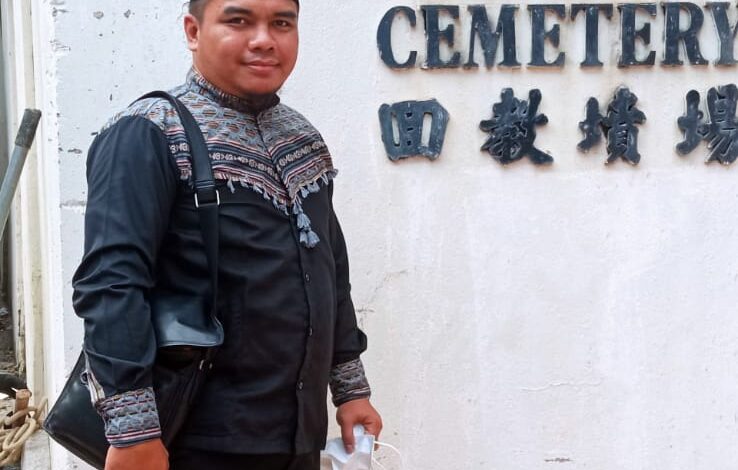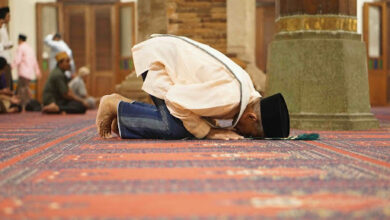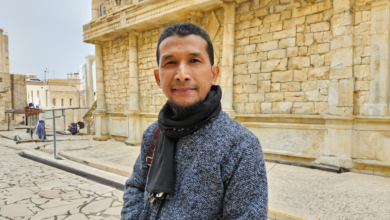
By: H. Abdul Rohman Rojali, Lc., MA
Among God's wisdom in creating His creatures is the diversity and differences that God created in this universe. The beauty and balance of nature would not occur without this diversity.
Allah created various types of creatures, with various forms and their own characteristics. Even within each type of creature, there is also a diversity of shapes, colors, abilities, and so on.
When Allah SWT creates differences in life, Allah SWT actually wants these differences to be a blessing for human life, as Islam was revealed by Allah SWT as a blessing for all creatures. Allah Almighty says:
وَمَآ اَرْسَلْنٰكَ اِلَّا رَحْمَةً لِّلْعٰلَمِيْنَ
"And We (Allah) did not send you (Muhammad), except to be a mercy to the worlds." (QS. Al-Anbiya: 107)
Imam Ibnu Khaldun in his book "Al-Muqoddimah" explains that there are three main purposes for Islam to be revealed to this earth. That is:
1. تحقيق الأمن (Creating peace and safety)
2. تحقيق الرفاهية (Creating prosperity)
3. تعبيد الناس (Commanding humans to worship Allah SWT)
Especially for Indonesia, which has diversity, in fact historically our country has been a pluralistic nation, so that we have a motto that we uphold "Bhinneka Tunggal Ika", and in terms of beliefs it is also reflected in the existence of several religions. The rich diversity that we have is united in the values of Pancasila which were initiated by our founding fathers, as well as an encouragement to fight in implementing these Pancasila values in making diversity a strength for the future of the Indonesian nation.
The Pancasila values that we have are in line with Islamic values which we must practice in creating harmony in national life. In practice, by respecting each other, respecting inter-religious ways of worship, helping each other, not insulting other people with hate speech or anything else.
If it is related to the context of today's changes, how does Islam view the diversity/plurality that exists in this country, even in the world? As has been mentioned many times by Allah SWT in the Qur'an, Islam highly values diversity/plurality, because diversity/plurality is sunnatullah, which we must uphold and respect its existence.
As in (Qs Al Hujurat: 13), Allah SWT has stated:
God bless you ى وَجَعَلْنٰكُمْ شُعُوْبًا وَّقَبَاۤىِٕلَ لِتَعَارَفُوْا ۚ
God willing, God willing, God willing, God willing, God willing, God willing. ِيْمٌ خَبِيْرٌﱠ
"O people, indeed We created you from a man and a woman and made you into nations and tribes, so that you may know each other."
This verse shows that God himself has created diversity. This means that diversity in this world absolutely exists.
This diversity does not mean that one's group or school of thought is the most correct. What we need to know is that diversity has existed since the time of the Companions. That is, when the Prophet died, the friends each claimed that he was worthy to be the Prophet's successor.
Islamic teachings prioritize brotherhood or ukhuwwah in responding to diversity. The term Ukhuwwah is explained in Qs. Al-Hujurat :10,
God willing كُمْ وَاتَّقُوا اللّٰهَ لَعَلَّكُمْ تُرْحَمُوْنَ
"Indeed, believers are brothers, therefore make peace between your two brothers and fear Allah so that you may receive mercy."
The strictness of Islamic sharia illustrates how much attention Islam pays to issues of diversity, by prioritizing brotherhood, harmony and peace. Several hadiths give an example that fellow Muslims are likened to one body.
"The parable of the believers in their attitude of mutual love, affection and affection, is like the body, if one part of the body is sick, then the other parts of the body will have difficulty sleeping or feel a fever." (HR. Muslim)
"Love the creatures on earth, then surely the creatures in the sky will love us." (HR Imam Thabrani)
Another parable is like a building. "A believer and another believer are like a building, some strengthen others." (Sahih Muslim no. 4684)
Diversity and tolerance in the religion that we practice is commensurate with the Islamic teachings that we have believed in all this time. The principle of tolerance taught by Islam is to allow other people to worship and celebrate holidays without disturbing them.
In fact, the principle of tolerance that some people believe comes from the Quraish pagans where they once said to our Prophet Muhammad, "O Muhammad, what if we worship your God and you (Muslims) also worship our God? We are tolerant in all matters of our religion. If there is a part of your religious teachings that is better (in our opinion) than our religious guidance, we will practice that. On the other hand, if any of our teachings are better than your religious guidance, you must also practice them." (Tafsir Al Qurthubi, 14: 425).
In another verse Allah Ta'ala says,
لَا يَنْهٰىكُمُ اللّٰهُ عَنِ الَّذِيْنَ لَمْ يُقَاتِلُوْكُمْ فِى God willing هُمْ وَتُقْسِطُوْٓا اِلَيْهِمْۗ اِنَّ اللّٰهَ يُحِبُّ الْمُقْسِط ِيْنَ
اِنَّمَا يَنْهٰىكُمُ اللّٰهُ عَنِ الَّذِيْنَ قَاتَلُوْكُمْ فِى ا لدِّيْنِ وَاَخْرَجُوْكُمْ مِّنْ دِيَارِكُمْ وَظَاهَرُوْا عَلٰٓى اِخْرَاجِكُمْ اَنْ تَوَلَّوْهُمْۚ وَمَنْ يَِ ىِٕكَ هُمُ الظّٰلِمُوْنَ
"Allah does not forbid you to do good and be fair to those who do not fight you because of religion and do not (nor) expel you from your land. Indeed, Allah loves those who act justly. Indeed, Allah only forbids you to make as your friends those who fight you because of religion and expel you from your land, and help (others) to expel you. And whoever makes them friends, those are the wrongdoers." (QS. Al Mumlahanah: 8-9)
This verse teaches the principle of tolerance, namely that every Muslim should do good to others as long as it has nothing to do with religious matters.
Ibn Kathir Rahimullah said, "Allah does not forbid you from doing good to non-Muslims who are not fighting you, such as doing good to women and the weak among them. Do good and justice because Allah loves those who do justice." (Tafsir Al Qur'an Al 'Azhim, 7: 247).
Ibnu Jarir AthThobari Rahimahullah said that this form of doing good and justice applies to every religion. See Tafsir Ath Thobari, 14: 81.
As Muslims, in upholding Islamic values, this should be realized through a sense of brotherhood, mutual respect and maintaining unity so that in the eyes of the world it can be seen that Indonesia is a country that has Bhinneka Tunggal Ika and upholds Islamic teachings that are rahmatal lil 'alamin, not the teachings of radicalism. .
Just like the Prophet Muhammad SAW at the beginning of building in Medina. The prophet of the end times, Rasulullah, brought the Ansor and Muhajirin together as brothers, then made an agreement between the Jews and Christians in Medina. Then create a government system and laws that are mutually agreed upon while maintaining diversity.



